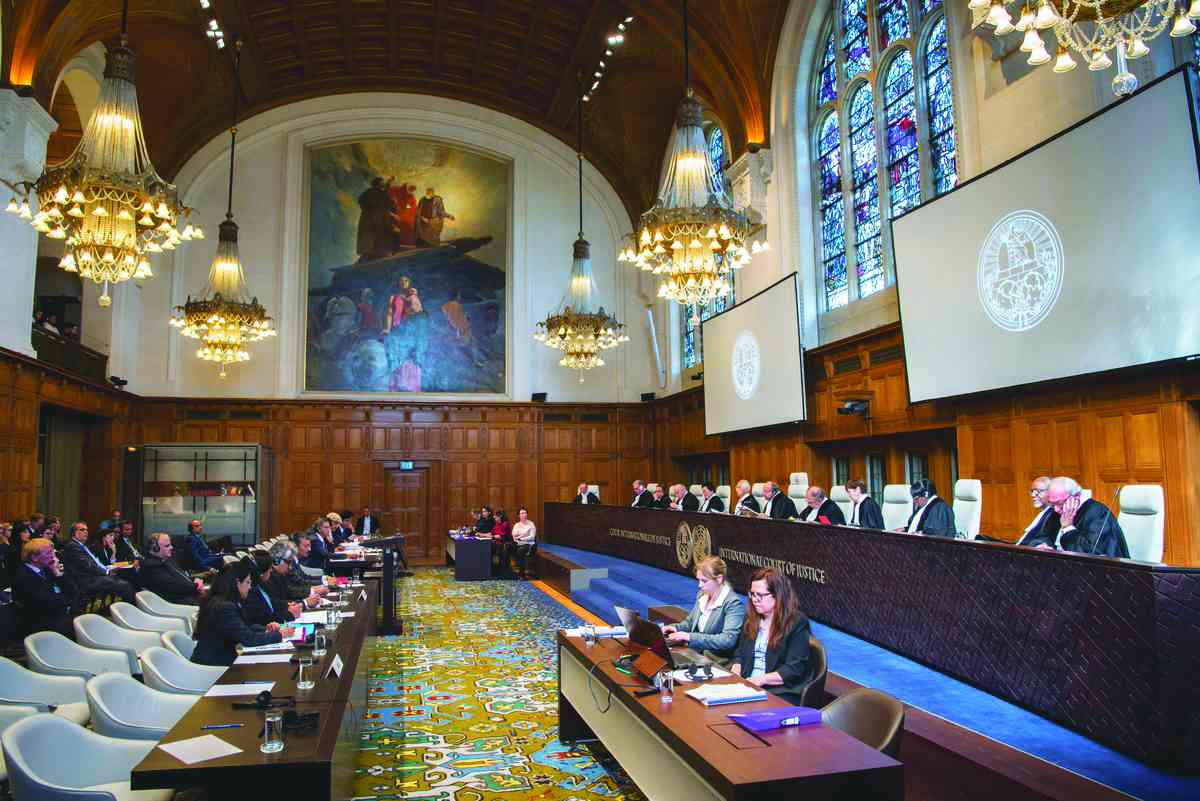A move for video recording of the Supreme Court will make proceedings accessible to the common man and give full expression to the fundamental right of speech and opinion as guaranteed under Article 19(1)(a)

~By Indira Jaising
What would it be like to get your information about the Supreme Court straight from the judges and lawyers arguing the case in real time and not from Twitter? With the Supreme Court seeking an opinion from authorities regarding steps for audio and video recording of court proceedings, this could become a reality.
After 70 years of Independence, our judges and lawyers in the Supreme Court have matured, have been exposed to jurisprudence worldwide and what they say in court has great educational value, not all of which is captured in the judgment. The great advantage of the new system will be that a bystander will get both sides of the picture and can make up her mind on the rights and wrongs of the argument.
Take the US. Listening to the judges who dealt with the travel ban imposed by President Donald Trump was sheer pleasure. We learnt of the questions that state attorneys could not answer and the exchange between the judges and lawyers was direct and to the point. There was no sycophancy, but only respect and firmness.
EMPOWER CITIZENS
Live streaming of the Supreme Court in cases of constitutional and national importance, which have an impact on the public at large, will empower and provide access to the ordinary citizens who cannot personally come to court due to constraints of time and distance.
In these circumstances, it is a shame that we do not make use of modern-day technology and still keep our courts cloistered from public view. Allowing the public to enter with a pass is simply not good enough. Even when the press is allowed entry, they are not allowed to carry their cell phones. The media has a duty to communicate developments in court rooms accurately to the general public and they would be assisted in their task if they were permitted phones in the court. After all, lawyers are. We get live tweets from court anyway, so why not live streaming?

Two recent examples support this stand—the hearings in the triple talaq case and in the right to privacy case. Streaming would have educated an information-hungry nation of issues that affect them intimately. It would bring law to their doorstep, make it user-friendly and provide educational value, as we would witness history in the making.
Surely it would also promote transparency and accountability in the administration of justice and will inspire the confidence of the public in the judiciary. As has been said by the Court literally on several occasions, justice must not only be done but seen to be done.
Live streaming would help build confidence in the court, avoid misreporting and gossip-mongering in the corridors about who said what. Surely the public has a right to receive information of the developments in court in real time.
The right to direct first-hand information on case proceedings of constitutional and national importance which have an impact on the public is a pre-requisite to the full expression of the fundamental right of speech and opinion of citizens guaranteed under Article 19(1)(a) of the constitution. In the Secretary, Ministry of Information & Broadcasting v. Cricket Association of Bengal 1995 SCC (2) 161vide, a three-judge bench has held in Para 122 (ii): “The right to impart and receive information is a species of the right of freedom of speech and expression guaranteed by Article 19(1)(a) of the Constitution. A citizen has a fundamental right to use the best means of imparting and receiving information and as such to have an access to telecasting for the purpose.”
Persons who are unable to physically access the Supreme Court due to socio-economic factors or disability and have failed to get justice shall at least be able to have first-hand information in case of proceedings on issues of constitutional importance that affect them directly or indirectly.
CASES ABROAD
Constitutional courts in other jurisdictions allow for live streaming of select cases as they acknowledge that it is essential to access courts. The Supreme Court of the United Kingdom Practice Directions 8 provides that the president and the justices of this Court have given permission for video footage of proceedings to be broadcast where this does not affect the administration of justice. Also, the recording and broadcasting is conducted in accordance with the protocol which has been agreed with representatives of the relevant broadcasting authorities. The president or the presiding justice may additionally impose such conditions as he or she considers appropriate, including obtaining consent from all parties involved in the proceedings. The policy on live text-based communication from the UK Supreme Court allows for the broadcast of proceedings via the permanent camera equipment installed in the courtrooms. The cases which come before the UK Supreme Court do not involve interaction with witnesses or jurors and it is rare for evidence to be adduced which may then be heard in other courts.
In the Supreme Court of Canada, all hearings of appeals are recorded on video. Most courtroom proceedings are webcast live and are later televised by the Canadian Parliamentary Affairs Channel. Anyone wishing to obtain a video recording for an educational, non-commercial purpose must fill an on-line request to use Supreme Court of Canada photographs, videos or webcasts. If approval is granted, the requestor will be required to sign an undertaking setting out the terms of use and will be required to pay a fee to obtain a copy of the tape. Note that certain appeals may be subject to a publication ban. If a request for a video recording is granted, it is the responsibility of the person or entity broadcasting the appeal to ensure that the publication ban is respected.
In my opinion, other than criminal cases and family law where the privacy of an accused is compromised or a family dispute is required to be protected by privacy, all other cases of constitutional importance are required to be live-streamed.
Significantly, the Lok Sabha and the Rajya Sabha allow live-streaming of the proceedings of the House. That being said, there is no reason why an organ of the state denies the general public the right to access court proceedings through live streaming.
At the end of the day, openness of the courts is the ultimate guarantee that justice will be done. Sunshine, as they say, is the best antiseptic for injustice.
—The writer is a senior advocate
of the Supreme Court


